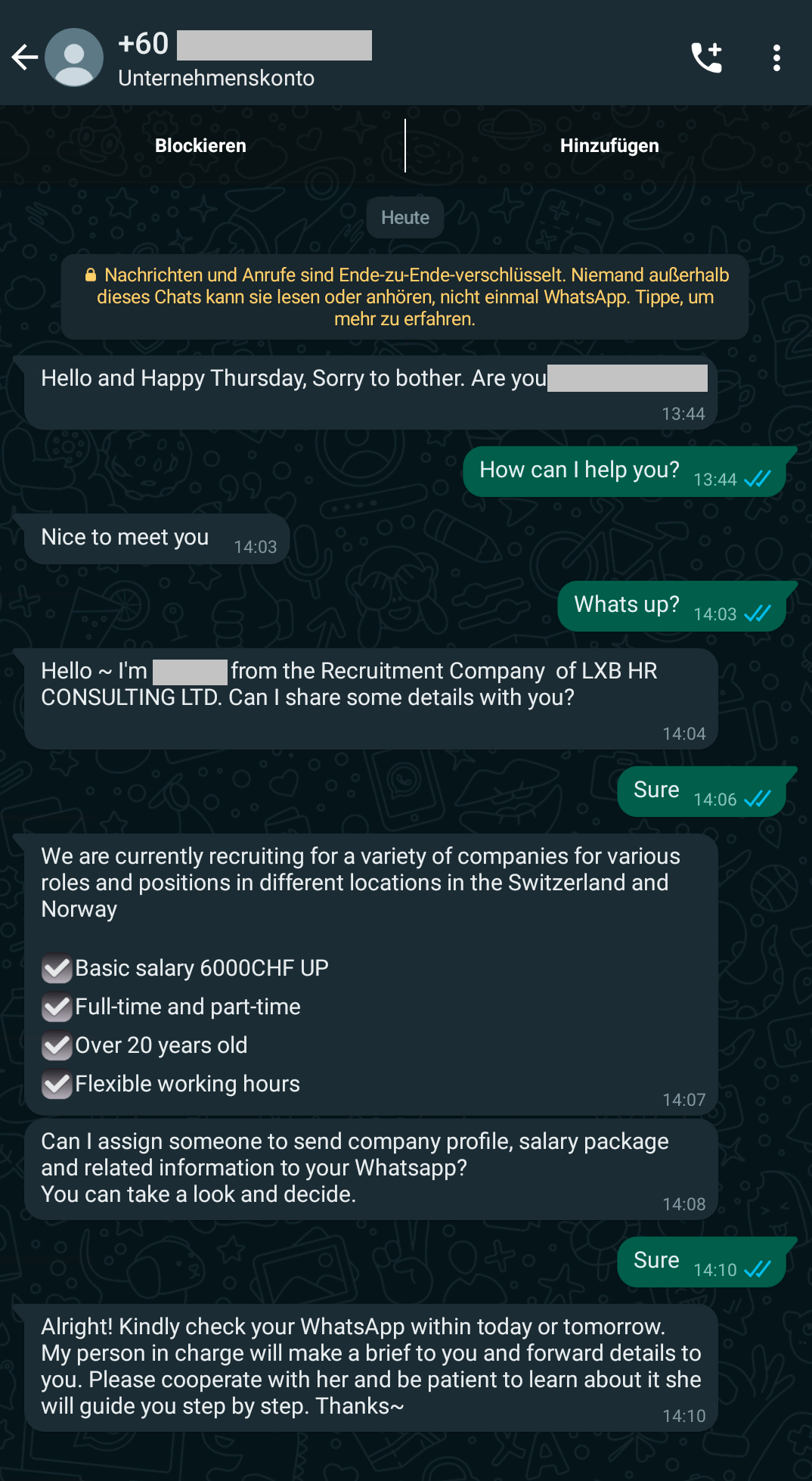05.09.2023 - Fake job offers have already been reported on in previous NCSC weekly reviews. New variants have emerged in recent weeks. In contrast to previous approaches, payments do not have to be made before starting work, but only once the victim has started work.

The variants of fake job offers observed so far have mainly involved job offers in the hotel sector. When someone shows interest in one of these fake offers, the fraudsters demand an advance payment of between EUR 300 and EUR 1,000 for a Swiss permit or for taking out health and accident insurance. These job offers are published primarily on Italian job portals and now also on Greek sites.
In recent weeks, there has been an increasing number of reports on variants of fake job offers aimed at a broader audience. In these variants, the first contact is made via social media, email or job sites. During the hiring process, however, instant messaging is then used to continue communicating. Applicants are lured with promises of exceptionally high earnings, which are disproportionate compared to the nature of work required. Examples of this include writing reviews, buying products, recommending fashion items or testing apps. After recruitment, applicants are directed straight to a platform, which is often an imitation of a legitimate website. This platform is then supposed to be used to process "salary payments" and "bonuses".
Payment required for assignments
One of the fake job offers involves writing product reviews. The "employees" receive a list of assignments via an online platform. A certain amount is paid for each review, which is credited to the employee's account via the platform. However, the number of available assignments quickly decreases until it reaches zero. In order to speed up the process and avoid having to wait for new assignments, the platform offers the option of generating new assignments for a fee: 50 new review assignments can be purchased for a few dollars. The promised profit, which in turn is to be credited to the platform, far exceeds the cost, which is supposed to make this model worthwhile for the victim. Known as Pay2Fast, it is reminiscent of the way some smartphone games work, where players have a limited number of plays per day and then have to wait.
The rude awakening comes when the victim wants to cash out their accrued earnings. In order to receive the salary, the platform operator demands fees for as long as it takes for the victim to realise that it is a scam. As the platform is fictitious, the same applies to the remuneration: it is also not real.
Private money for the super bonus
In another variant, which also involves app ratings and app optimisations, generous bonuses are promised in addition to a fixed salary. Here, too, the victim receives money in their account in the "company portal" for each assignment completed. In the beginning, you can even have this money paid out. Later on, however, it is claimed that the victim has made too little profit to receive a super bonus. The victim is told to inject their own money in order to receive the super bonus. At the same time, in WhatsApp groups, purported employees report that this super bonus is huge and that people should consider themselves lucky to be able to buy in with their own money. The earnings are then credited to the fictitious account on the portal. Here, too, the scammers repeat the process until the victim realises the fraud. During this time, the promised earnings and the associated demands for payment become bigger and bigger.
- Beware of job offers that require an advance payment.
- Question any payments you are asked to make while doing the job.
- Report the matter to the police if you have been the victim of such an incident.
Current statistics
Last week's reports by category:
Last modification 05.09.2023







